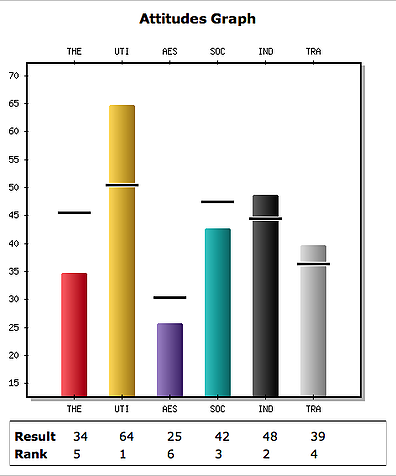This is part 3 of a 5 part blog series on How to Know If You are Hiring A Don Draper Salesperson.
My first 100 sales hires sucked
Do you ever recall the past and remember things better than they really were? I like to think I was 40 percent successful in my early days of hiring salespeople, which is not great... but it was likely closer to 15 percent.
I was horrible.
One early sales-hire seemingly showed a lot of promise. I thought I did my homework on him. I scrutinized his  past work history. When I checked his references, they passed him off as a gladiator. When I flew out to meet him, he said all the right things. He had past sales experience that appeared strong.
past work history. When I checked his references, they passed him off as a gladiator. When I flew out to meet him, he said all the right things. He had past sales experience that appeared strong.
Was I ever wrong. The first sign was when I could hear his children in the background on a conference call with a Prospect. Can you hear "Twilight Zone" music playing loudly like I can right now?
When I eventually fired him, it was almost a relief for him.
I have learned quite a few lessons through trial and error. Plus I am a sore loser. When I lose, I autopsy what went wrong and then I go back and make incremental improvements.
Past sales performance is not indicative of future sales performance
It was only when I looked at myself in the mirror that I came to grips with who was screwing up our sales hiring. I was. My ego was in the way. It said, "I can pick 'em! I know talent!"
No I did not. No one does. It was my fault; the buck stopped at me. The answer to the question, "What is wrong with our sales hiring?" was "Chris Young".
The powerful lesson is that the past sales "performance" of a candidate can often reflect a powerful brand, great product or excellent service. Much of the time, the salesperson deserves very, very little credit.
I realize that there are still CEOs, Sales Managers, and HR Managers who believe they can still "pick 'em", and I call bullshit! I have never, ever met anyone who can hire a sales wolf consistently, unless it is under the guise of an outstanding brand, product, or service.
Behaviors Predict Sales Performance
Motivators Predict Sales Performance
The science of motivation is fascinating and powerful. Eduard Spranger, a German philosopher and psychologist, contributed to personality theory by identifying "value attributes" - meaning that every individual has a unique combination of six value attributes or Motivators that influence:
- How items and tasks are prioritized
- What is considered a reward
- Why someone will do what they do
A brief description of the six value attitudes follows:

- Theoretical - The desire to seek knowledge, education, and intellectual growth.
-
Utilitarian - The desire to seek practical accomplishments and a return on time, energy, and money.
-
Aesthetic - The desire for balance, creative self-expression, beauty and nature.
-
Social - The desire to be of service or helpful to others.
-
Individualistic - The desire to seek personal recognition, freedom, and control over their own destiny and that of others.
-
Traditional - The desire to seek tradition through social structure, rules, regulations, and principles.
After assessing and researching the performance of thousands of sales professionals, we have identified two critical Motivators that are essential for top sales performance. If either of these two Motivators are missing, it is extremely unlikely the sales candidate or salesperson is an actual sales wolf.
The Motivators of Don Draper salespeople
Of the above six motivators, the two that are critical to "sales wolf performance" are the Utilitarian and the Individualistic.
Salespeople with a high Utilitarian / Individualistic combination - especially those with both the Utilitarian and Individualistic above the national mean significantly increases the likelihood they will be a sales wolf (top 20 percentile performer).
A true Don Draper salesperson (top 10 percentile performer) requires an even more specialized Motivators mix. Don Drapers possess a high Utilitarian / Individualistic combination, followed by a high Theoretical and a lower-than-average Social combination.
In a future blog post, I will share about the power of the Traditional and how it can work for or against a company, depending on the level of buy-in the salesperson has toward the company's brand, product, service, management or culture.
"How do I interview for Motivators?"
The question I often hear is, "How do I interview for Motivators?" My answer is straightforward - Do not even try.
It is very difficult to consistently identify Motivators during the interview process.
The only way to objectively and consistently identify if a salesperson or candidate has the Motivators to be a sales wolf is to use the TriMetrix® HD sales personality assessment test. The TriMetrix® HD is the only multi-science assessment instrument with validity backed by brain research.




